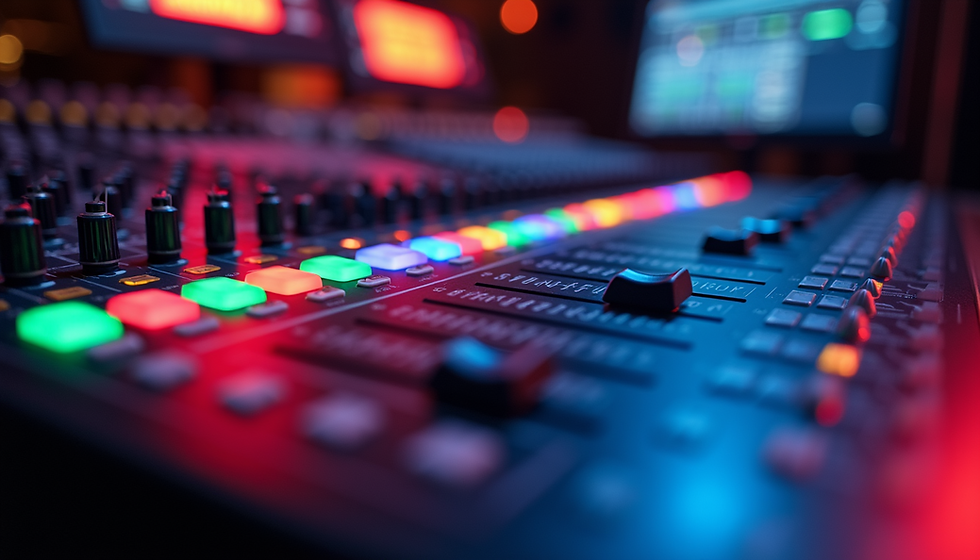Does Genre Still Matter in 2025?
- STUDIO814
- May 8, 2025
- 2 min read

Genres used to be the map. If you said you liked punk, or R&B, or house music, people understood what you meant — what you listened to, maybe even what you wore. Genre told you where to shop for CDs, who your people were, what section your band would get shelved under.
Now? That map is shredded.
Ask anyone under 30 what genre they listen to and the most common answer is: everything. Hip-hop, sad indie, house, rage beats, hyperpop, jazz, lo-fi, reggaeton — often in the same playlist. Music discovery isn’t led by genre anymore, it’s led by vibe. Emotion. Context. The mood you’re in when you hit play.
That doesn’t mean genre is gone. But it’s been redefined — from a fixed category to a fluid tool. In 2025, genre still exists, but it’s not a rulebook. It’s an ingredient.
Playlists Replaced the Shelf
The biggest shift happened when music stopped being sold and started being streamed. The second iTunes and Spotify took over, genre labels lost power. Instead of asking “what kind of music is this?” the platforms started asking “how does this music make you feel?”
That’s how we got playlists like “sad chill,” “rage,” “feel good indie,” “late night drive,” “main character energy.” These aren’t genres — they’re moods. And they’re how millions of people discover new music now.
For artists, this broke the mold. If you’re not being boxed into “alt-rock” or “hip-hop,” you can try anything. A rap verse on a shoegaze beat. A country hook on an EDM drop. No A&R telling you it’s too weird. Just vibes.
Artists Lead the Collapse
Look at the artists dominating the culture in 2025:
Doja Cat blends rap, rock, and pop — often in the same song.
Travis Scott built a trap-soundscape hybrid.
070 Shake floats between alt-pop, R&B, and experimental.
Yves Tumor and Jean Dawson refuse to pick a lane.
Lil Nas X went from meme rap to country trap to stadium-pop.
The artists who win today aren’t staying in a lane — they’re making their own roads.
Even legacy genres like jazz, metal, and gospel are being pulled into new spaces. You’ll hear gospel chords in drill beats. Metal riffs under distorted hyperpop vocals. The old genre lines aren’t erased — they’re being smudged and redrawn in realtime.
But Does Genre Still Matter?
Yes — but differently.
For music history, genre still gives us language. It tells us where things came from, how they evolved. It’s the story.
For gatekeepers, genre still matters — radio formats, award shows, some corners of media still rely on categories.
For fans, genre can be about identity. If you grew up in a punk scene, or the gospel church, or underground hip-hop, that context still matters. It shapes how you connect.
But even in those spaces, the idea of “genre purity” is fading. Nobody stays in one sound forever. And why should they?
In 2025, genre isn’t dead — it’s just loosened up. It’s no longer a box. It’s a palette. And the artists painting outside the lines are the ones leading the future. So yeah, genre still matters. But not in the way it used to. It’s not the destination anymore. It’s just one of the ways you get there.





Comments